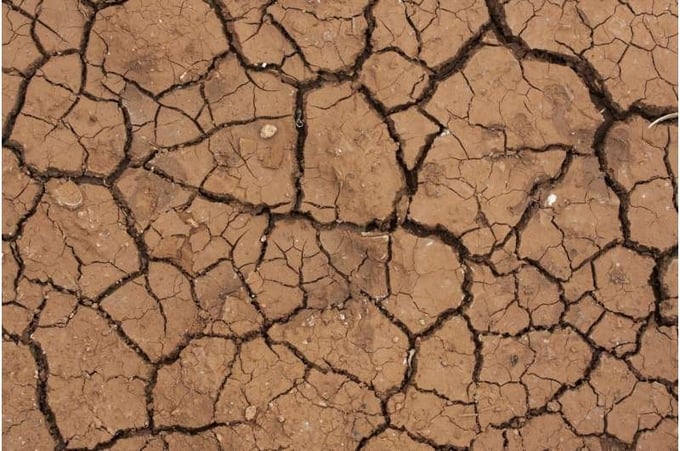May 16, 2025 | 10:35 GMT +7
May 16, 2025 | 10:35 GMT +7
Hotline: 0913.378.918
May 16, 2025 | 10:35 GMT +7
Hotline: 0913.378.918

Photo: Pixabay
For every 1 degree Celsius of warming, yields of major crops like corn, soybeans and wheat fall by 16% to 20%, gross farm income falls by 7% and net farm income plummets 66%.
Those findings, reported in a policy brief released Jan. 17, are based on an analysis of 39 years of data from nearly 7,000 Kansas farms. The brief is a collaboration between the Cornell Atkinson Center for Sustainability, the Environmental Defense Fund (EDF) and Kansas State University.
The lead Cornell author is Ariel Ortiz-Bobea, associate professor in the Charles H. Dyson School of Applied Economics and Management and a Cornell Atkinson faculty fellow.
"For decades, the U.S. agricultural sector has seen 1.5% productivity growth every year, year over year—few countries have seen that kind of sustained growth," Ortiz-Bobea said. "Globally, we've found that climate change has already slowed productivity growth. Global agricultural productivity is 20% lower today than what it could have been without anthropogenic climate change."
Risk management practices and programs play a crucial role in reducing the impacts of extreme heat on net farm income, the report finds. Crop insurance, government payments, adjustments in the amount of crops farmers save or sell, and access to irrigation all helped buffer the effects of extreme heat on farm financial outcomes.
Crop insurance was the most significant buffer, helping farmers recover 51% of net losses.
"Farmers have different ways to cope with extremes. Prices can respond to shocks, farmers can change inventory, but by and large the bulk of the income-smoothing is related to government programs, and that's very striking," Ortiz-Bobea said.
The findings have implications for farms nationwide. Kansas was chosen as an example because of its high production of staple crops such as wheat, corn and soybeans; because the state includes drier regions with growing conditions more like Western states and wetter regions more like the Midwest; and because of the availability of high-quality yearly data, Ortiz-Bobea said.
Extreme heat is defined in the report as temperatures higher than 32 degrees Celsius (89.6 degrees Fahrenheit); studies show that crop yields start declining at that temperature. From 1981 to 1990, Kansas experienced 54 extreme heat days; from 2011 to 2020, there were 57.
Climate models project a 58% increase in hot days (days above 82 degrees F) by 2030 and a 96% increase by 2050 in Kansas, relative to temperatures between 1981 and 2020. More hot days mean a longer growing season, and the report's authors studied whether that longer growing season might compensate for losses caused by extreme heat.
Based on historical data, they found that "increasing temperatures appear to have had a greater negative impact on growing conditions because of extreme temperatures than a positive impact through extending growing season length," the report states.
To bolster farms' resilience to climate change, the study recommends that:
"Implementing practices that build resilience to climate change may present short-term risks for farmers that will need to be addressed by lenders, insurers and federal programs," said Vincent Gauthier, manager of climate-smart agriculture at EDF. "Developing financial and risk management solutions that proactively support farmers in the transition to climate-resilient production systems is critical to reducing climate risks to farmers while maintaining robust agricultural production."
(Phys.org)

(VAN) Fourth most important food crop in peril as Latin America and Caribbean suffer from slow-onset climate disaster.

(VAN) Shifting market dynamics and the noise around new legislation has propelled Trouw Nutrition’s research around early life nutrition in poultry. Today, it continues to be a key area of research.

(VAN) India is concerned about its food security and the livelihoods of its farmers if more US food imports are allowed.

(VAN) FAO's Director-General emphasises the need to work together to transform agrifood systems.

(VAN) Europe is facing its worst outbreak of foot-and-mouth since the start of the century.

(VAN) The central authorities, in early April, released a 10-year plan for rural vitalization.

(VAN) Viterra marked a significant milestone in its carbon measurement program in Argentina, called Ígaris, reaching 1 million soybean hectares measured.